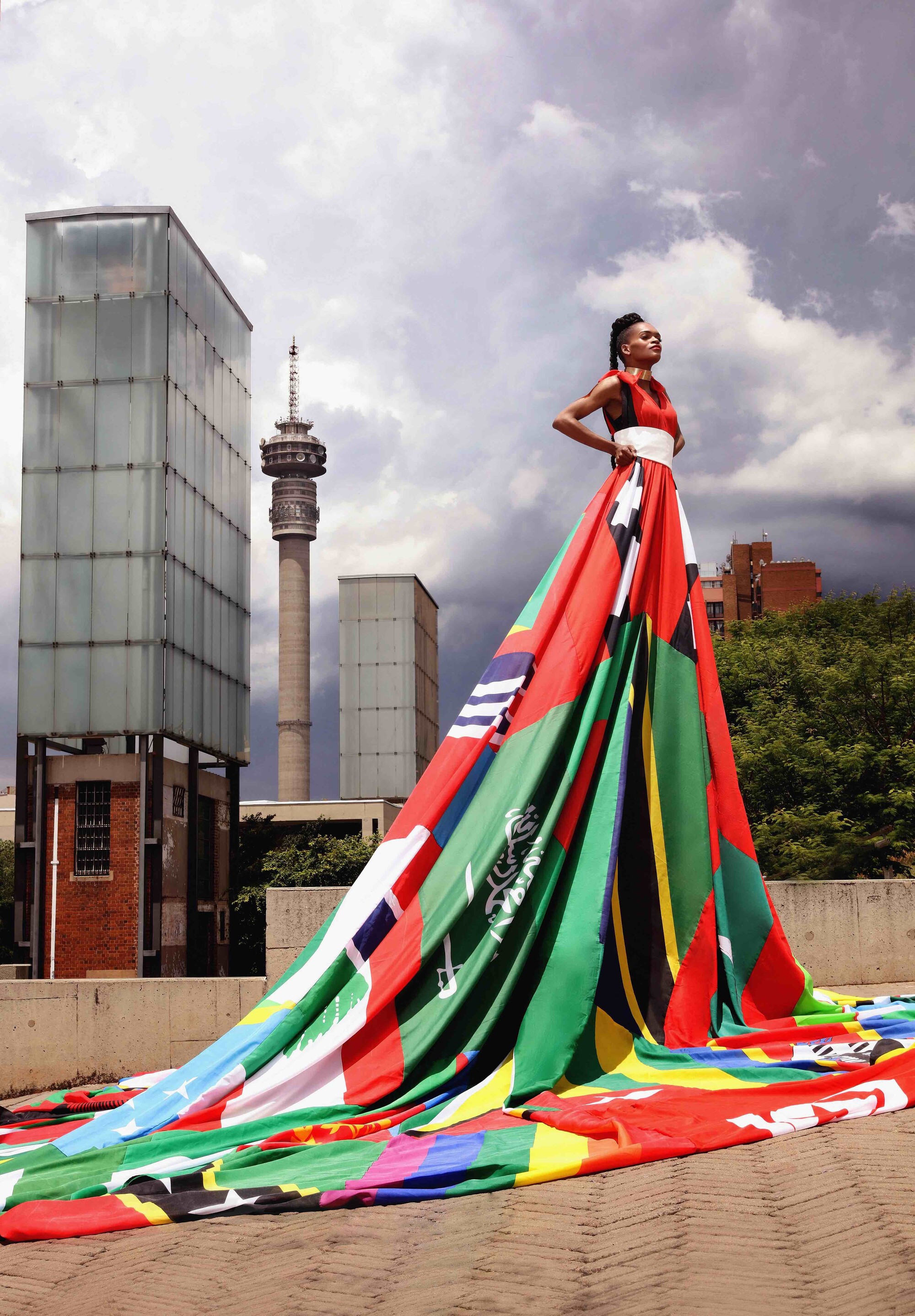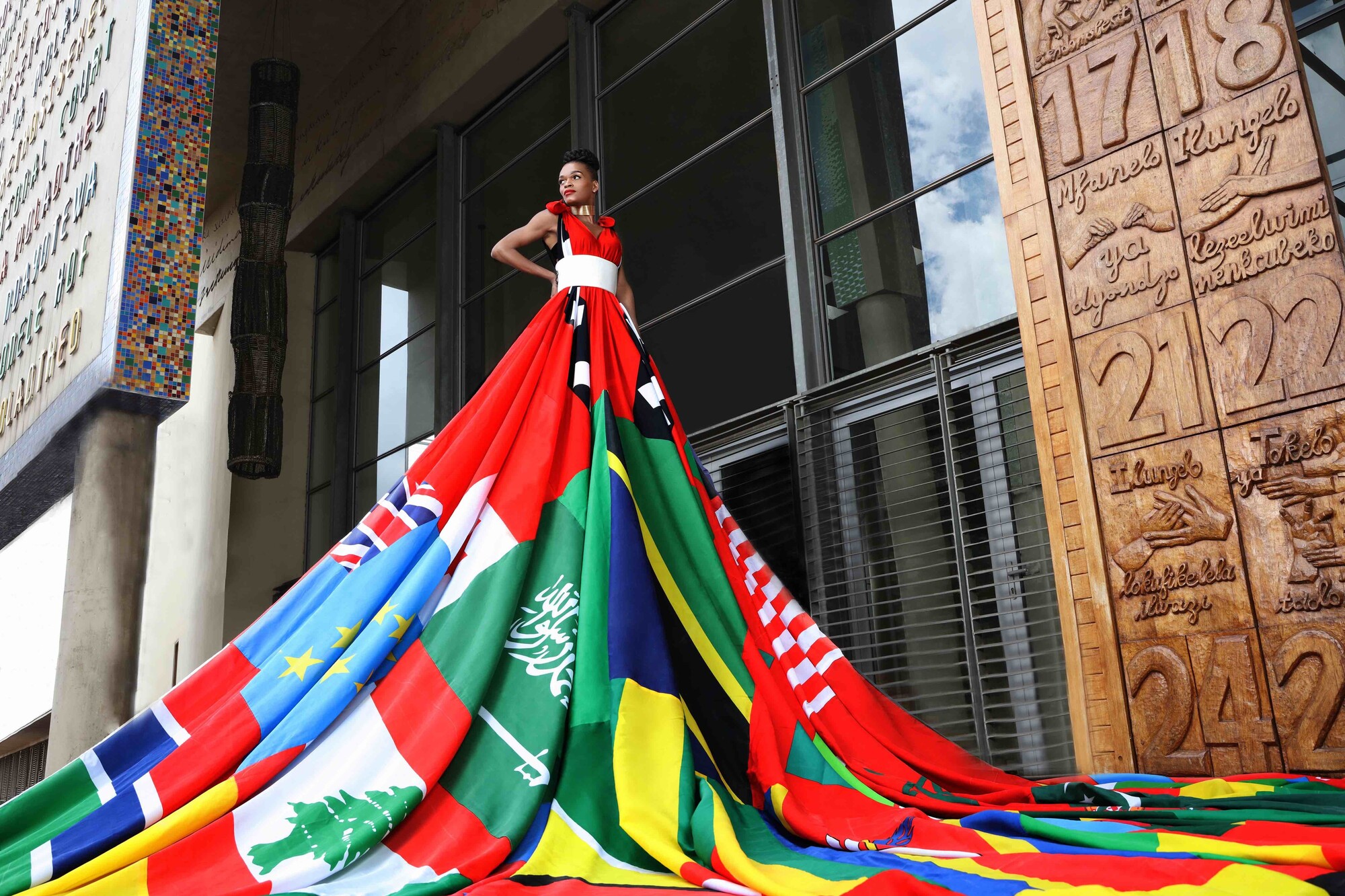Marking IDAHOT, Dutch Embassy gifts Amsterdam Rainbow Dress photographs to the CCAC
Date posted: 15 May 2020

Photographer: Neo Ntsoma, Amsterdam Rainbow Dress (2018)
Transgender model and activist Yaya Mavundla wearing the Amsterdam Rainbow Dress on Constitution Hill, Johannesburg, with the Constitutional Court in the background.
To mark the 2020 International Day Against Homophobia, Transphobia and Biphobia (IDAHOT) on 17 May, photographs taken by Neo Ntsoma, featuring transgender model and activist Yaya Mavundla wearing the Amsterdam Rainbow Dress, will be donated by the Dutch Embassy to the Constitutional Court Trust (CCT), custodian of the Constitutional Court Art Collection (CCAC).
In December 2018, the CCT entered into a partnership with the Embassy of the Kingdom of the Netherlands in South Africa to present and photograph the Amsterdam Rainbow Dress at the Constitutional Court, with the assistance of students of the Market Photo Workshop. The dress was shown for the first time in Africa due to the Dutch Embassy’s efforts.
The Amsterdam Rainbow Dress is a work of art made from the flags of all countries in the world where homosexuality is illegal, which is changed to a rainbow flag when such legislation is changed. It aims to create awareness of the persecution of LGBTIQ+ people, and is a powerful example of how art can be used to champion the cause of justice and humanity.
Our Constitution guarantees dignity and equality and outlaws persecution of sexual and gender identities. South Africa was the first African country to legalise same-sex marriage in 2006. Across Africa, official persecution thrives, while in South Africa itself, too much homophobia still persists. Celebrating diversity falls within the core objectives of the CCT and the ethos of the CCAC. Through this project, the CCT sought to address the representational gap in the CCAC of artworks speaking to the lived experiences of queer persons.
During the reception of the project on the 10th of December 2018, International Human Rights Day, Justice Edwin Cameron, a long-standing committed guardian of the CCAC and trustee of the CCT, addressed the fact that in too many African and other countries it remains criminal to express same-sex views or engage in private, consensual same-sex conduct. He spoke of the persistent violence and abuse towards LGBTI+ persons. He also lauded the work of Simon Nkoli, an openly gay anti-apartheid activist who died of AIDS in 1998. Many artworks in the CCAC speak about the historical plight and stigma of those living with HIV/AIDS.
The photographic prints will be exhibited in the public gallery of the Constitutional Court later in 2020. The CCAC welcomes artwork donation proposals that speak to the intersection of art and justice, more information can be found here.
To keep up with the CCAC, follow us onInstagram and Twitter, or email ccac@concourttrust.org.za with queries.

Photographer: Neo Ntsoma, Amsterdam Rainbow Dress (2018)
Transgender model and activist Yaya Mavundla wearing the Amsterdam Rainbow Dress in front of the Constitutional Court of South Africa.